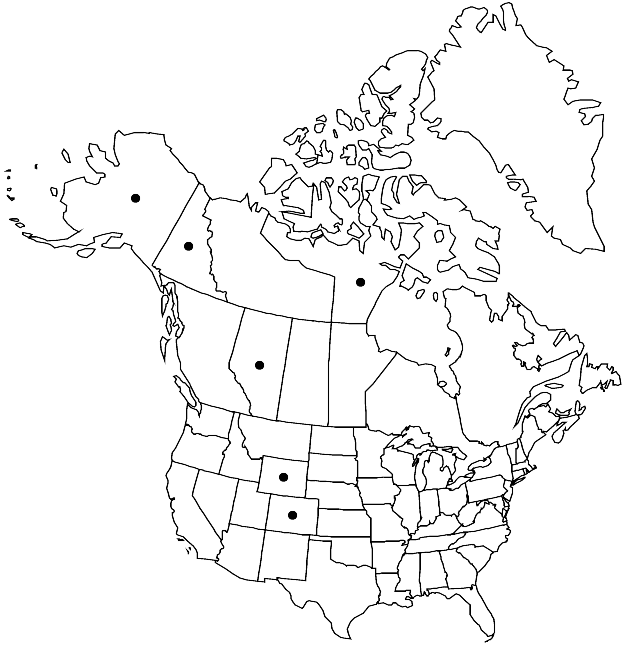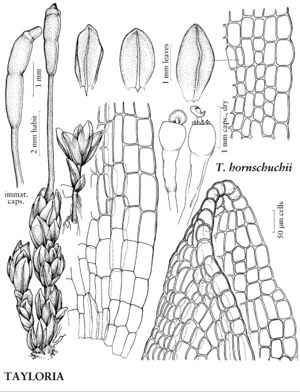Difference between revisions of "Tayloria hornschuchii"
in H. G. A. Engler and K. Prantl, Nat. Pflanzenfam. 216[I,3]: 502. 1903.
FNA>Volume Importer |
imported>Volume Importer |
||
| (4 intermediate revisions by 2 users not shown) | |||
| Line 1: | Line 1: | ||
{{Treatment/ID | {{Treatment/ID | ||
|accepted_name=Tayloria hornschuchii | |accepted_name=Tayloria hornschuchii | ||
| − | |accepted_authority=(Greville & Arnott) Brotherus | + | |accepted_authority=(Greville & Arnott) Brotherus |
|publications={{Treatment/Publication | |publications={{Treatment/Publication | ||
|title=in H. G. A. Engler and K. Prantl, Nat. Pflanzenfam. | |title=in H. G. A. Engler and K. Prantl, Nat. Pflanzenfam. | ||
| Line 9: | Line 9: | ||
|special_status={{Treatment/ID/Special_status | |special_status={{Treatment/ID/Special_status | ||
|code=F | |code=F | ||
| − | |label= | + | |label=Illustrated |
}} | }} | ||
|basionyms={{Treatment/ID/Basionym | |basionyms={{Treatment/ID/Basionym | ||
|name=Dissodon hornschuchii | |name=Dissodon hornschuchii | ||
|authority=Greville & Arnott | |authority=Greville & Arnott | ||
| + | |rank=species | ||
|publication_title=Mem. Wern. Nat. Hist. Soc. | |publication_title=Mem. Wern. Nat. Hist. Soc. | ||
|publication_place=5: 468, plate 13, figs. 34 – 38. 1826 | |publication_place=5: 468, plate 13, figs. 34 – 38. 1826 | ||
| Line 41: | Line 42: | ||
-->{{#Taxon: | -->{{#Taxon: | ||
name=Tayloria hornschuchii | name=Tayloria hornschuchii | ||
| − | + | |authority=(Greville & Arnott) Brotherus | |
| − | |authority=(Greville & Arnott) Brotherus | ||
|rank=species | |rank=species | ||
|parent rank=genus | |parent rank=genus | ||
| Line 55: | Line 55: | ||
|publication title=in H. G. A. Engler and K. Prantl, Nat. Pflanzenfam. | |publication title=in H. G. A. Engler and K. Prantl, Nat. Pflanzenfam. | ||
|publication year=1903 | |publication year=1903 | ||
| − | |special status= | + | |special status=Illustrated |
| − | |source xml=https:// | + | |source xml=https://bitbucket.org/aafc-mbb/fna-data-curation/src/2e0870ddd59836b60bcf96646a41e87ea5a5943a/coarse_grained_fna_xml/V28/V28_9.xml |
|genus=Tayloria | |genus=Tayloria | ||
|species=Tayloria hornschuchii | |species=Tayloria hornschuchii | ||
Latest revision as of 22:38, 5 November 2020
Plants 3–7 cm, in moderately dense tufts, brown proximally, yellow-green distally. Stems unbranched, or 6 or fewer subterminal innovations. Leaves crowded at stem and branch apices, stiffly erect-imbricate when dry, lingulate, 1–2.5 × 0.7–1.2 mm; margins plane or slightly revolute proximally, entire; apex obtuse; costa ending 3 or 4 cells before apex. Specialized asexual reproduction by brood bodies usually in proximal leaf axils. Sexual condition dioicous. Seta stramineous, shorter than 1 cm, not or scarcely twisted, stout. Capsule oblong to cylindric, quadrate mid capsule, 1 × 1 mm; hypophysis stramineous to dark red-brown when mature, 1.5 mm; columella exserted; operculum systylius, flat, apex obtuse but usually elongate; peristome inserted at mouth; exostome teeth 16, partially split into 32, erect to reflexed when dry, red to red-brown, truncate to obtuse. Spores 30–40 µm, papillose.
Phenology: Capsules mature summer.
Habitat: Humic soil, exposed soil
Elevation: low to high elevations
Distribution

Alta., Nunavut, Yukon, Alaska, Colo., Wyo., c, n Europe.
Discussion
Tayloria hornschuchii is distinguished by the well-developed, often wrinkled hypophysis, as wide as the urn and gradually tapering to the seta; systylius operculum with exserted columella; papillose exostome of 16 unpaired or partially split teeth; and dioicous sexual condition. The leaves of T. hornschuchii are crowded at stem apices and innovations and strongly keeled. The brood bodies are few to many, of six or fewer cells, and red to red-brown at maturity.
Selected References
None.
